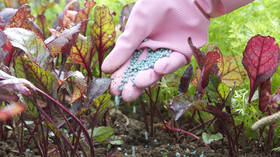EU says Russian food and fertilizers are free from sanctions

Anyone who wants to buy Russian food and fertilizers can do so freely and without the fear of sanctions, which don’t apply to these products, EU Foreign Policy Chief Josep Borrell said on Monday.
“Our sanctions don’t target food, don’t target fertilizers. Everyone that wants to buy Russian food and fertilizers, they can do it, no obstacles... so they can operate, they can buy, they can transfer, they can insure,” Borrell told the press ahead of a meeting with EU foreign ministers, which is set to focus on ways to free up Ukrainian grain stuck in Black Sea ports amid the ongoing military conflict in the country.
However, EU sanctions target Russian shipping, preventing the country’s grain and fertilizers from being delivered to the global market. This has led to a growing food crisis, with wheat prices surging to record highs over the past two months.
Ukraine, also a major breadbasket, was left unable to export its grain by sea. The WTO estimates that between 22 million and 25 million tons of grain are currently held in Ukraine’s ports. And while Western nations have accused Russia of blocking these exports, Moscow has repeatedly stated that it is eager to provide safe passage for the grain-laden ships through the Black Sea but that the Ukrainian military is preventing this because they mined the ports.
According to Borrell, the consequences of the crisis in Ukraine “are becoming very dangerous not only for Ukraine but for the whole world.”
“I have to warn again about the risk of a great famine in the world, especially in Africa, and it is the war which is creating price increases and the scarcity on energy and food. We are supporting United Nations’ efforts to de-block the export from Ukraine,” he stated.
For more stories on economy & finance visit RT's business section













